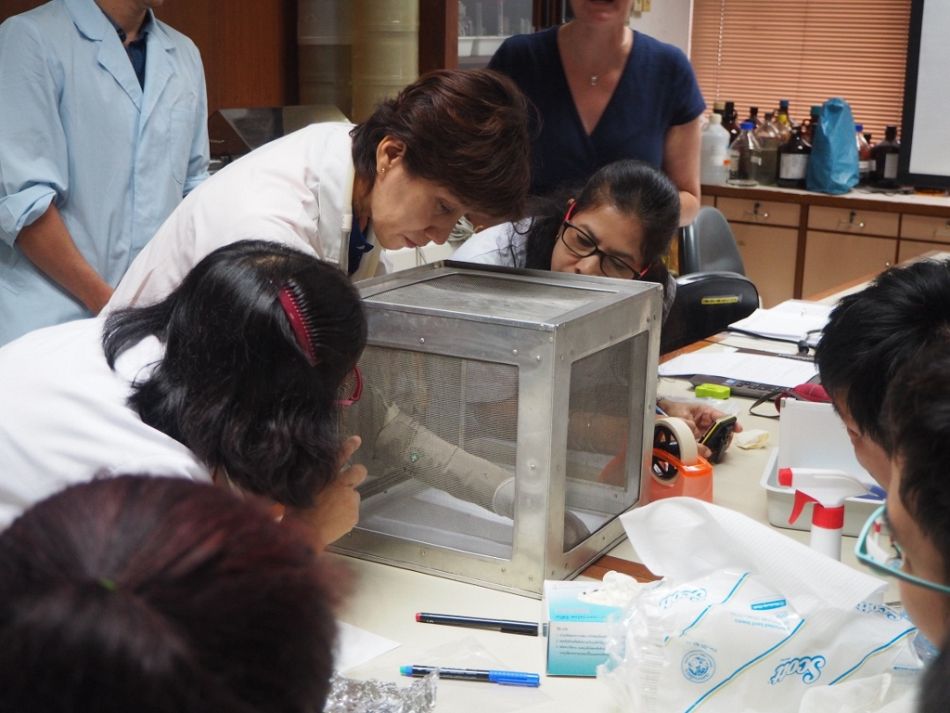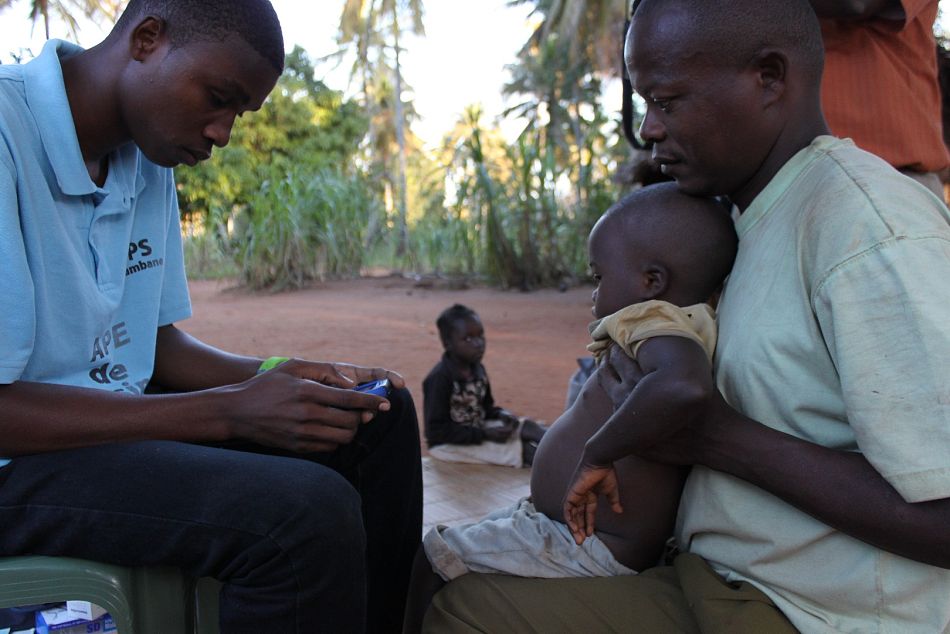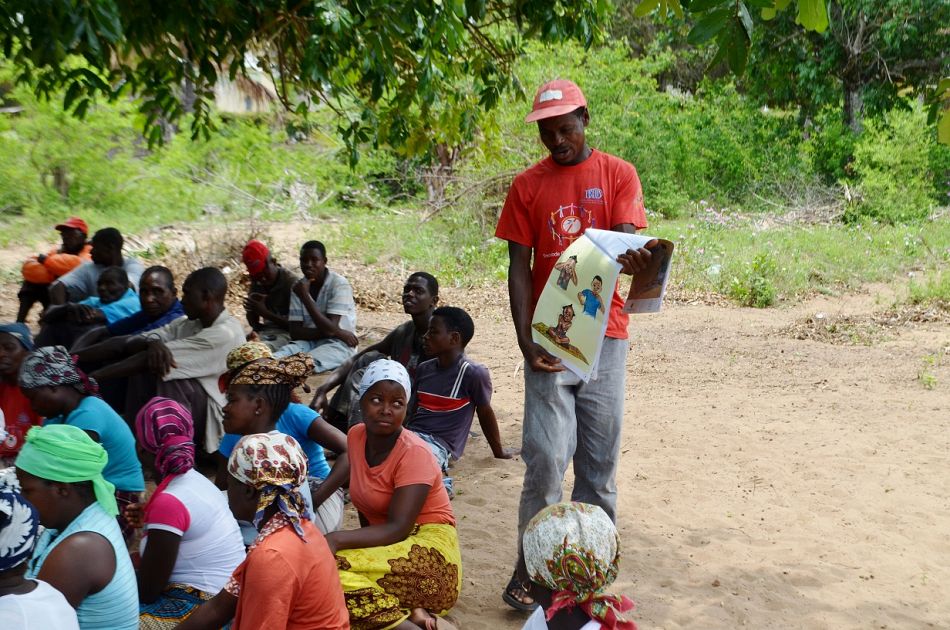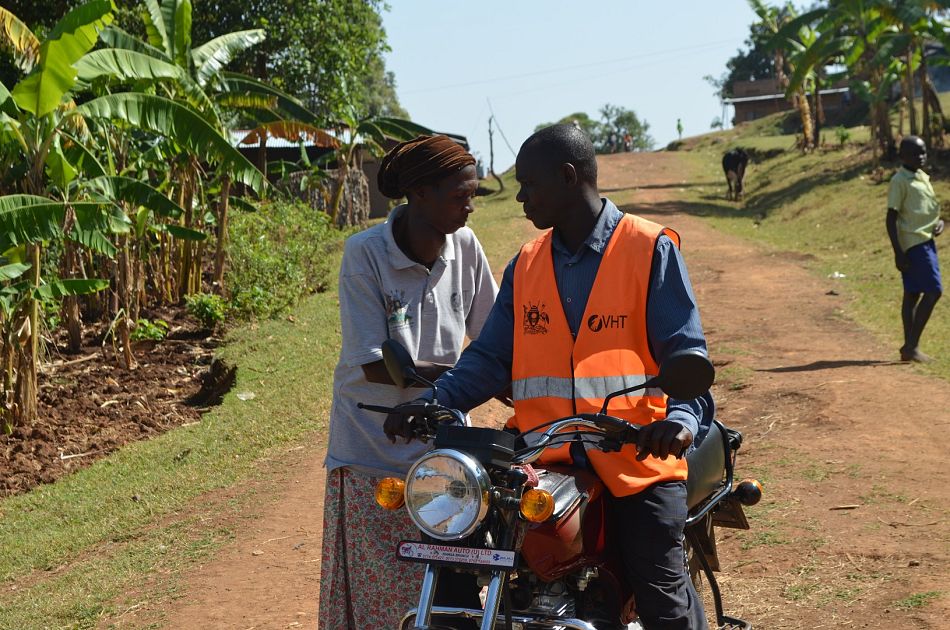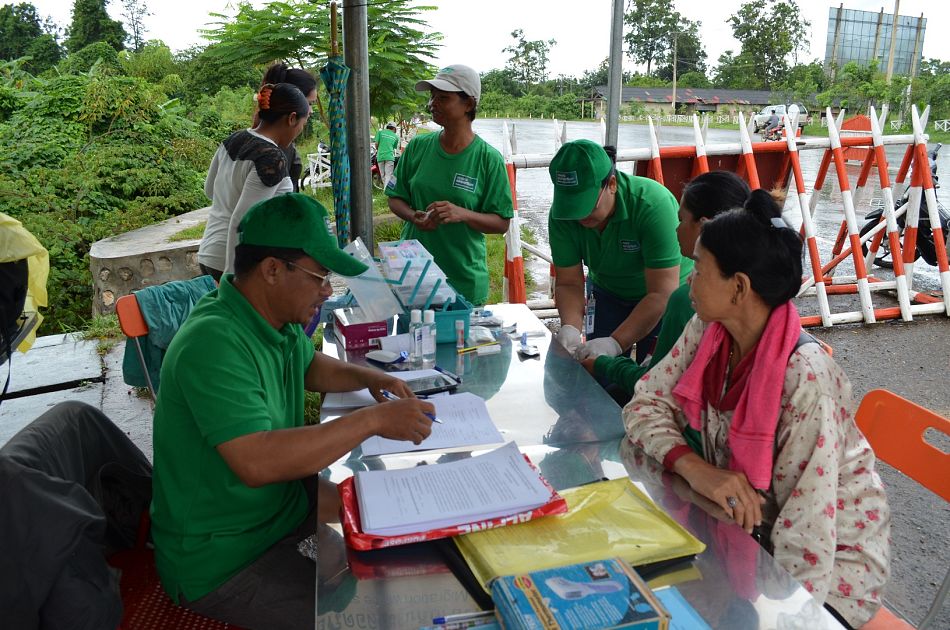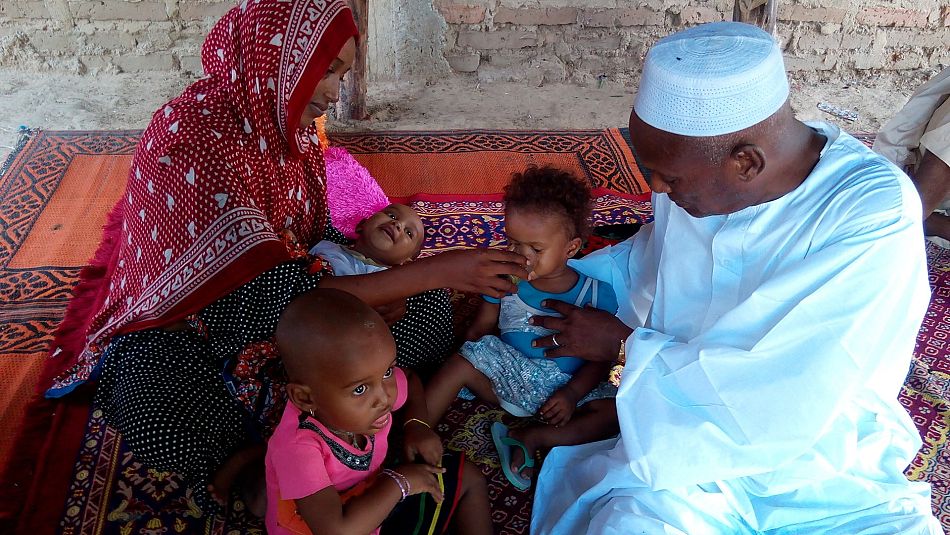Innovation key to defeating malaria
25 April 2016
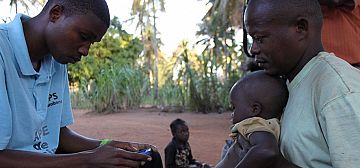 Copyright Malaria Consortium
Copyright Malaria ConsortiumLondon, 25 April 2016 – “Significant progress in malaria control and elimination has been made between 2000 and now, with malaria mortality rates falling by 60 percent and over 6.2 million lives saved since 2000. This has to be seen as good news, but there remains much more to be done to finish the task of eliminating this disease.”
Charles Nelson, Malaria Consortium’s Chief Executive made this statement to mark today’s World Malaria Day, which provides an opportunity for the global health community to highlight achievements made to date and to discuss challenges ahead in the fight against malaria. “If we are to meet the 2030 Sustainable Development Goals’ targets for malaria control and elimination, it is important we find the right balance and continue the fight funding both countries with the highest residual burden, and those aspiring more immediately for malaria elimination,” he continued.
This year is the first of a new era of malaria control, marking the transition from the Millennium Development Goals, in which malaria deaths fell by 60 percent, to that of the Sustainable Development Goals (SDGs). The new set of targets and goals aims to reduce not only malaria cases, but also malaria related deaths by 90 percent by 2030.
Within this new context, a number of challenges remain which threaten to undermine the success so far – including drug resistant malaria, which is spreading in Southeast Asia. Reinvention and creative thinking are required in addition to the tried and tested tools. At Malaria Consortium, we believe that innovation is key to progress. We constantly test out novel approaches to malaria control and bring research to all our projects.
To highlight one of our most promising innovations, Malaria Consortium is taking part today in an experiential event at Westminster hosted by the All Party Parliamentary Group on Malaria & Neglected Tropical Diseases and the UK Malaria Advocates. We will showcase our work in mobile technology and demonstrate how a mobile phone app linking community health workers with their colleagues and supervisors can save thousands of lives. The event will engage, inform and inspire policymakers about the importance of Britain’s role as a champion in the fight against malaria.
Malaria still accounts for 438,000 malaria related deaths globally. By investing in a malaria-free future and achieving 2030 targets for malaria control, we will achieve healthier societies and economies, higher school attendance, improved worker productivity and an overall better quality of life of millions of people in Africa and Asia. This contribution is estimated to add US$ 1.2 trillion to endemic countries’ economies.
Check out some of our top innovations in the photo gallery below:
Our study in Myanmar, funded by President’s Malaria Initiative and UK aid, tested the effectiveness of insecticide treated clothing in reducing mosquito bites compared with untreated clothing. Here, a woman places her covered arm into a mosquito-filled box to see how effectively the treated garment repels mosquitoes.
Our work developing mobile phone applications for community health workers (CHWs) in Uganda and Mozambique has helped them to diagnose patients (pictured above), submit patient data, notify district and national health officials of drug stockouts, and keep in closer contact with other CHWs and supervisors.
We have used mobile technology in other contexts, too. In Cambodia, we piloted a UK aid-funded project that used SMS technology in the private sector to improve referrals and integrate private patient data into the National Malaria Information System. In Uganda, we have sent reminder text messages to health workers to remind them of guidelines on how to provide preventive treatment for malaria to pregnant women.
Simply providing mosquito nets doesn’t guarantee a reduction in malaria cases. People must be willing and able to use them. In Mozambique, we have targeted at-risk groups (such as pregnant women at antenatal care clinics) with nets as well as information on their use, supported the commercial sector to develop a market for nets that make them affordable for all, and have worked to create demand as well as promote proper use of nets through communications activities.
In Nigeria, we promote health messages using a variety of platforms. Our Support to National Malaria Programme (SuNMaP), funded by the UK government, created demand for malaria services through radio jingles, dramas, television commercials, posters and leaflets. The photo above, showing a Lagos bus, is an example of some of the creative methods that we used to spread positive health messages.
Another innovative behaviour change approach that we have implemented in Asia involves the identification and promotion of healthy behaviour already existing within communities. Originally used to improve nutrition outcomes in the 1970s, the ‘positive deviance’ approach identifies role models who can share their everyday health-seeking behaviour with the rest of the community in an attempt to improve overall health. Malaria Consortium is the first organisation to apply this method to malaria control in an elimination context. In this photo, a ‘positive deviant’ volunteer holds a meeting to discuss healthy practices with residents of Kyun Su township in Myanmar.
We have set up community dialogues in Mozambique, Uganda and Zambia to provide a platform for communities to discuss health issues, identify solutions and plan communal action. These dialogues are led by volunteers selected by the communities themselves and have proven to be successful in creating demand for community health services and getting participants to adopt healthy behaviour.
In Uganda, with funding from Comic Relief, we have supported motorcycle taxi drivers (called boda-bodas) to handle the transport of sick children to health facilities in Mbale district. Community health workers give these drivers vouchers indicating the amount that the health facility should pay the driver depending on the distance travelled.
In partnership with the National Malaria Control Programme (NMCP), and with funding support from the President’s Malaria Initiative, the US Centers for Disease Control and Prevention, and the Three Millennium Development Goal Fund (3MDG), Malaria Consortium led the first national survey for malaria in Myanmar last year. In the photo above, field workers go from house to house to assess gather data on the malaria burden.
In Cambodia, with funding from The Malaria Eradication Scientific Alliance (MESA), we have been working towards elimination by trying to catch every case of malaria. Part of this effort involves going to the households where malaria has been reported (often via text message from village malaria workers) and then screening other household members for malaria.
We are also working in the region to help limit the spread of malaria by setting up border checkpoints to screen migrant workers. If tests come back positive for traces of the malaria parasite, the patient is treated on the spot.
With funding from UNITAID, we are now carrying out distributions of seasonal malaria chemoprevention – an effective method of preventing malaria in children under five – in seven West African countries. Together with our partners, we will have provided 45 million treatments to more than six million vulnerable children by 2017.
12
1
Keywords: Maternal, neonatal and child health | Digital strategies | Advocacy and policy
Related content
23 October 2014inSCALE CommCare Application: Improving quality of care at all levels
Type: Technical brief
19 March 2015inSCALE Mobile Technology in Mozambique - enhancing community health
Type: Project
World Malaria Day 2016: Innovation leading the fight against malaria
Type: Webpage
 Copyright Malaria Consortium
Copyright Malaria Consortium